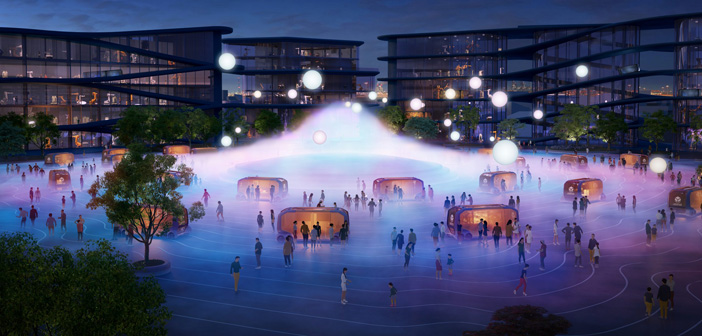At CES 2020, Toyota revealed plans to build a prototype ‘city of the future’ on a 175-acre site at the base of Mt Fuji in Japan. Called the Woven City, it will be a fully connected ecosystem powered by hydrogen fuel cells.
Envisioned as a “living laboratory,” the Woven City will serve as a home to full-time residents and researchers who will be able to test and develop technologies such as autonomy, robotics, personal mobility, smart homes and artificial intelligence in a real-world environment.
“Building a complete city from the ground up, even on a small scale like this, is a unique opportunity to develop future technologies, including a digital operating system for the city’s infrastructure,” said Akio Toyoda, president, Toyota Motor Corporation. “With people, buildings and vehicles all connected and communicating with each other through data and sensors, we will be able to test connected AI technology in both the virtual and the physical realms, maximizing its potential.”
Toyota will extend an open invitation to collaborate with other commercial and academic partners and invite interested scientists and researchers from around the world to come and work on their own projects in this “one-of-a-kind, real-world incubator”.
“We welcome all those inspired to improve the way we live in the future, to take advantage of this unique research ecosystem and join us in our quest to create an ever-better way of life and mobility for all,” added Toyoda.
The masterplan by Danish architect Bjarke Ingels includes three types of street designation: for faster vehicles only; for a mix of lower speed, personal mobility and pedestrians; and for a park-like promenade for pedestrians only. Toyota says that these three street types weave together to form an organic grid pattern to help accelerate the testing of autonomy.
The city is planned to be fully sustainable, with buildings made mostly of wood to minimize the carbon footprint, using traditional Japanese joinery combined with robotic production methods. The rooftops will be covered in photovoltaic panels to generate solar power in addition to power generated by hydrogen fuel cells. Toyota plans to weave in the outdoors throughout the city, with native vegetation and hydroponics.
To move residents through the city, only fully autonomous, zero-emission vehicles will be allowed on the main thoroughfares. In and throughout Woven City, autonomous Toyota e-Palettes will be used for transportation and deliveries, as well as for changeable mobile retail.
Toyota plans to populate Woven City with Toyota Motor Corporation employees and their families, retired couples, retailers, visiting scientists, and industry partners. The plan is for 2,000 people to start, adding more as the project evolves. Groundbreaking for the site is planned for early 2021.


